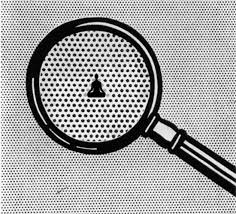…by Matt Robert, with Marc Lewis…
In this guest post, Matt, a regular contributor to this blog, takes a close look at the paradox of being in the moment. Is that a good thing — as meditation teachers counsel us? Or is it a sink-hole in time — a stagnant swamp where addiction can take root and grow? Matt’s fascinating exploration of the relation between addiction and time triggered my authorial outpourings…so I couldn’t resist adding a few sentences.
 “Being in the present moment” is nowadays touted as the goal of our attitude as well as our behavior. And in fact, it’s often a very motivating state of being for people — to be fully engaged, maybe in the “flow” of being creative, active, kind, or compassionate. There is nothing there but one’s focus and the activity itself. It can take us beyond the difficulties of life to a better place — as long as it lasts — for ourselves and everyone else.
“Being in the present moment” is nowadays touted as the goal of our attitude as well as our behavior. And in fact, it’s often a very motivating state of being for people — to be fully engaged, maybe in the “flow” of being creative, active, kind, or compassionate. There is nothing there but one’s focus and the activity itself. It can take us beyond the difficulties of life to a better place — as long as it lasts — for ourselves and everyone else.
 But here’s the problem with addiction. It keeps us in the present moment alright. Frozen in the present moment, locked in. We choose that route to go beyond our difficulties and move on with life, and yet we end up stuck…chained to the present moment. It’s like a funnel winnowing down our awareness to a single point, to the exclusion of everything else, and then everything else eventually falls away like chaff. And all that’s left is the next hit, the next drink, the next high…
But here’s the problem with addiction. It keeps us in the present moment alright. Frozen in the present moment, locked in. We choose that route to go beyond our difficulties and move on with life, and yet we end up stuck…chained to the present moment. It’s like a funnel winnowing down our awareness to a single point, to the exclusion of everything else, and then everything else eventually falls away like chaff. And all that’s left is the next hit, the next drink, the next high…
So what is different between these two ways of being “in the moment”? In the first case, the flow of the activity connects me to the past and the future versions of myself — who I was, who I am, and who I’m striving to be. As I engage in some social or creative activity, I am connected to my different selves. This doesn’t mean that I’m thinking about the past and future at any given moment. Rather, it means there are no barriers between past, present and future. The sense of flow is a sense of being in the present but also a larger sense of moving through life, in a continuous or seamless way. In my past, there is this little person trying to please his mother, and the teenager striving to be different, and all the other persona making up my life. And in the present there is this addictions worker, facilitating recovery meetings. But there is also the person in the future, perhaps running his own program, or sailing a boat in the Carribean. This makes me a person with an impetus to go forward, even if for the moment that means getting and staying sober.
 But in the other kind of “in the moment” — the ball and chain variety — there is no connection to our future self. The present is just recycling, never changing, concerned only with the immediate goal — which is to get more of whatever it is we seem to need. Whirlpools continue to “flow” in a sense. But they never get anywhere.
But in the other kind of “in the moment” — the ball and chain variety — there is no connection to our future self. The present is just recycling, never changing, concerned only with the immediate goal — which is to get more of whatever it is we seem to need. Whirlpools continue to “flow” in a sense. But they never get anywhere.
In the authentic kind of “in the moment,” our engagement is linked to who we are now and also who we could be. There is a continuity of experience. We might actually develop a talent for the activity we’re enjoying just now. It can move from being a hobby to being a commitment. We may become accomplished musicians, or social workers, or gardeners. This idea (which Marc also discusses) helps me incorporate my experience with my evaluation of that experience. I can become objective without losing the feeling of being subjective, in the moment. And I can do that however my process of recovery — of living my life — continues to unfold. It helps make sense of it all.
When people say “Be in the present moment” they mean that the present moment is all we have, and we need to cherish it as such. But in active addiction, it’s all we’re ever gonna have. A land of vanishing opportunity. At one point, I wanted it that way, and it was a comfort, a relief. Not to look at or worry about the future.
But that’s not me anymore, because I’ve accepted the fact that change is inevitable — and resistance is futile.

Leave a Reply to Jeffrey Skinner Cancel reply